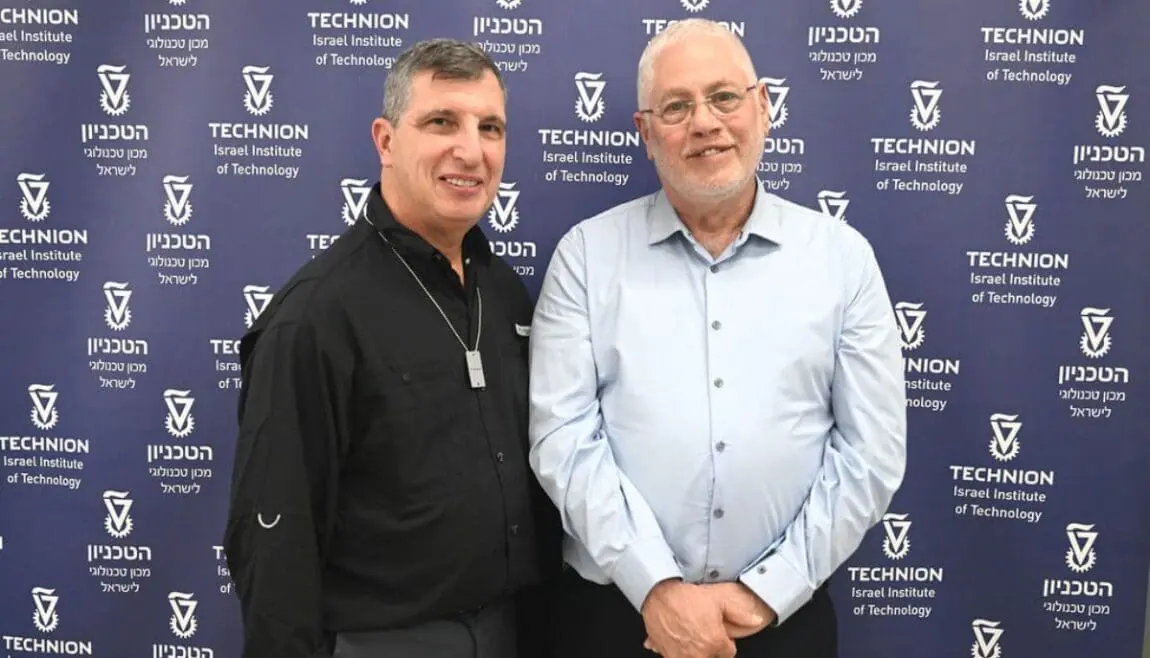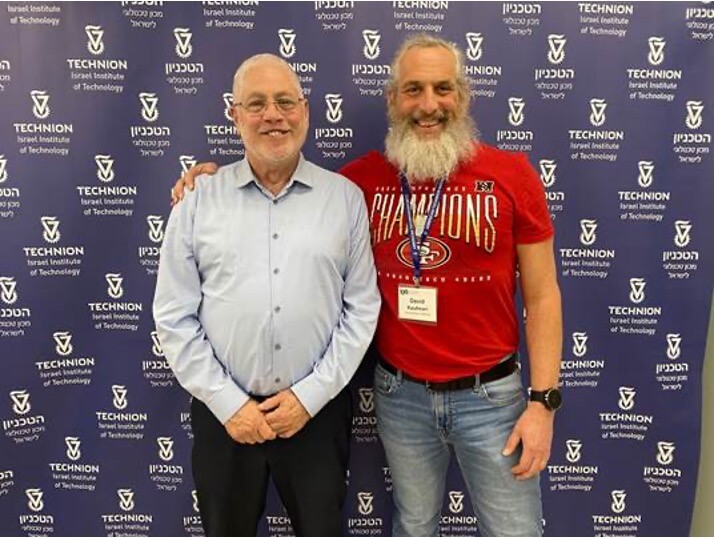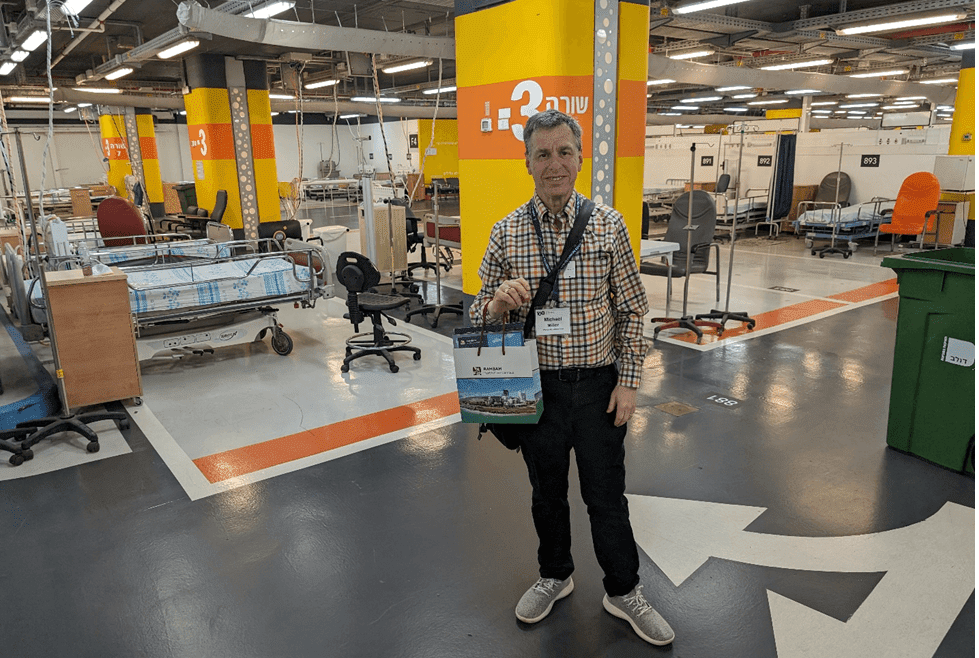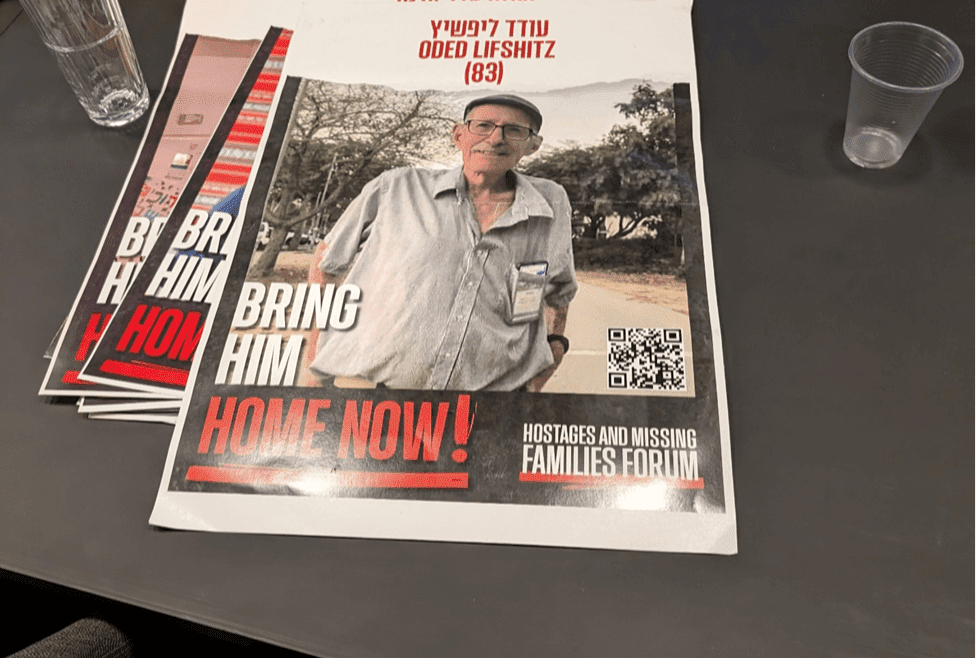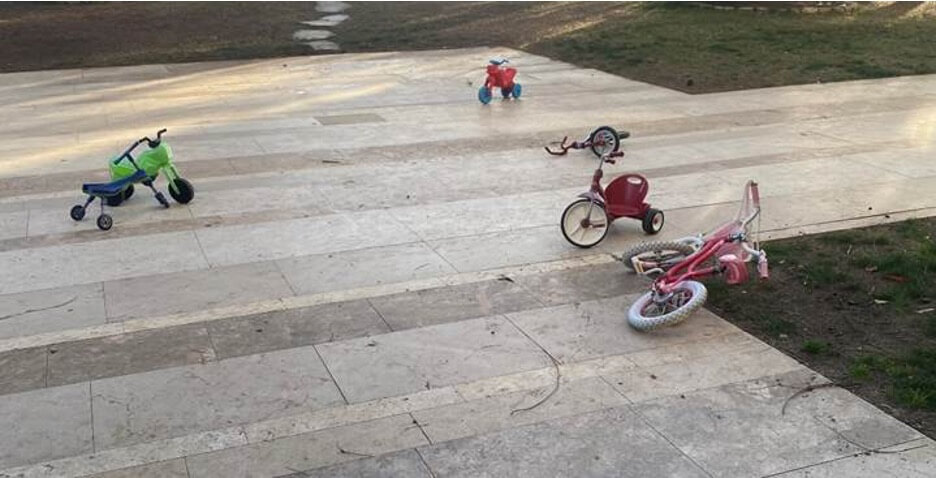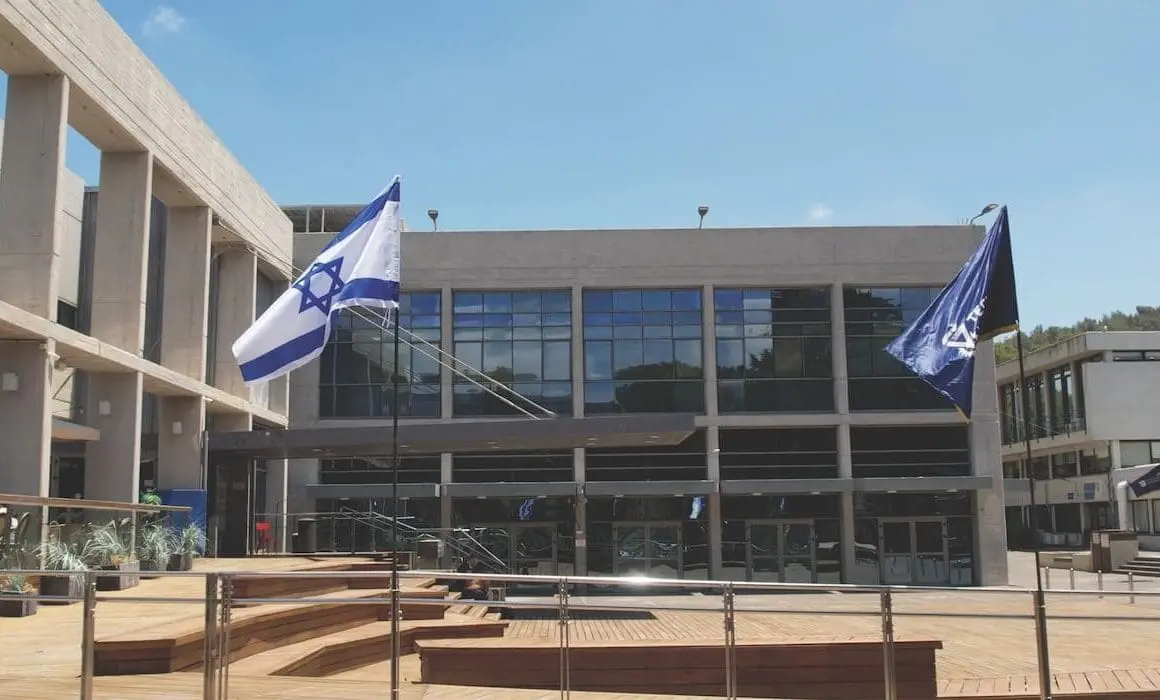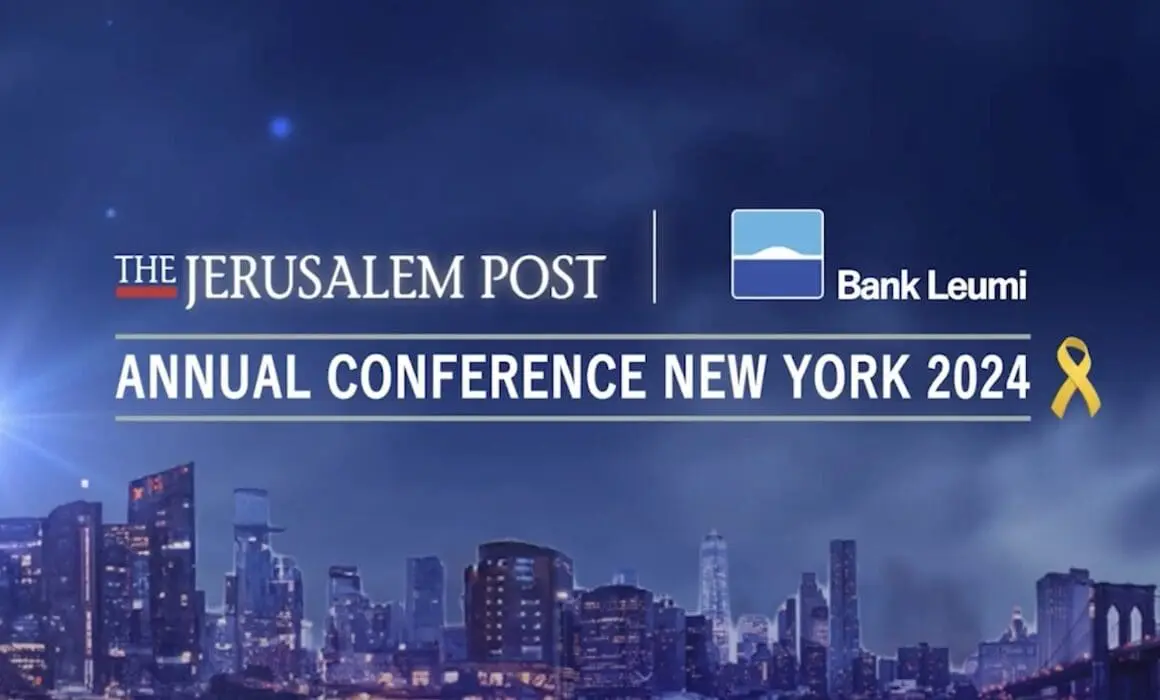A Visit of Solidarity to the Technion
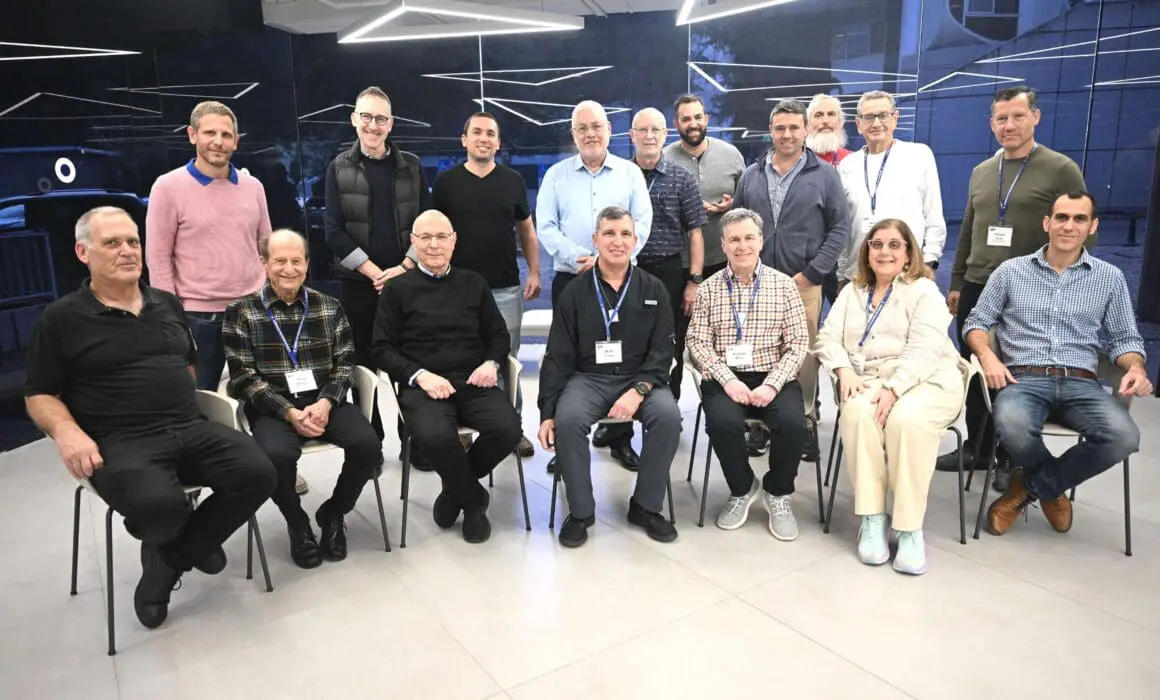
In early March, a small group of dedicated American Technion Society National Board members traveled to Israel on a Solidarity and Science Trip in support of the courageous students and faculty of the Technion who have faced unthinkable challenges since the events of October 7. The intense three-day visit was deeply significant and profoundly memorable.
“We came to Israel at this time not merely as observers but as pillars of unwavering support for the Technion and unity with the entire nation,” said Mark Gaines, ATS national president.
“Some of the stories we heard were horrible; some were inspiring, but all reflected the incredible spirit, intelligence, and, most of all, resilience that I’ve seen in Israel and at the Technion,” said Michael Miller, president of the ATS – New York Metro Leadership Council.
There were many powerful and inspiring moments. Here are but a few that left an indelible mark on the mission participants.
Student Reservists and Technion Support
Some 3,000 Technion students — 21% of the student body — were called up to serve in the IDF. Many of them spent more than 100 days serving in the army. Some will be going back again soon.
Participants heard from a student who, on October 7, was with his family on a kibbutz in the south. Seeing the terrorists, they hid in their house armed only with a kitchen knife. One student talked about barely escaping the site of the Nova music festival massacre and then being called up to serve in the army.
“Another told about how she and her fiancé were both called to serve and she showed pictures of them learning their wedding dance in their time off on an army base, and then getting married during the conflict,” Mr. Miller recalled. “Why not postpone? She said she had to ‘choose life’ — a phrase I heard multiple times.”
The Technion administration’s biggest concern has been the welfare of the student body, particularly those in the reserves. From day one, the University has provided them with financial, psychological, and educational support. Every department has a faculty member coordinating needs. Lectures are recorded. The Technion is doing all it can to address the gaps in the material students miss so they don’t fall behind while protecting Israel.
“As we stood together and witnessed the unprecedented wartime challenges, we were proud to see all that the University is doing for the student reservists—as we have been told more than any other university—and hope that our presence sent a resounding message of solidarity and commitment to the Technion,” said Mr. Gaines.
Securing the campus and preparing for a more worrisome war with Hezbollah — where Haifa and the Technion are sure to be a target — is a major priority. More than 100,000 people have been evacuated from the northernmost communities and Hezbollah has already launched more than 2,000 rockets into Israel. There is a common concern that it is not a matter of if, but when a full escalation with Hezbollah will begin.
More than $5.5 million was raised by ATS to support students and secure the campus.
“I saw some of the results of donations to the Technion Emergency Student and Security Fund with my own eyes,” said David Kaufman, president of the ATS – San Francisco Leadership Council. “There is a major investment in mental health with hundreds of students availing themselves of boosted psychological services, with staff trained in the impacts of severe emotional trauma.
“Plus, the Technion is providing several thousands of dollars of tuition support to help reservists bridge the gap. The entire university is pitching in to help those who are suffering. They are not waiting for students to reach out for help.”
Technion Executive Vice President and Director General Dr. Rafi Aviram explained that the Technion is like a small city of 20,000 people, and it needs to have shelters that people could stay in, potentially for days. The participants toured the Security and Emergency Center with Yova Geva, the head of Technion security. They witnessed how the campus is monitored and viewed new equipment, including a portable bomb shelter and two new emergency vehicles.
Professor Uri Sivan, president of the Technion, conveyed his tremendous gratitude for the generosity of ATS supporters. He expressed his concern about anticipated large government budget cuts due to huge wartime costs and security challenges. Just as it always has, the Technion will play a significant role in building the nation’s next chapter and looks to its American partners to help make it possible.
“Your help is even more critical than ever,” he said.
In addition to the need to complete major projects that were in the works prior to the war and meet the University’s goals to advance multidisciplinary research in climate change and sustainability, human health, impact technologies, and Israel’s security, the Technion launched a Reservist Fund to raise $20 million to address long-term fellowships and services for reservist students.
Technion’s Medical School
The Technion’s Ruth and Bruce Rappaport Faculty of Medicine is across the street from its affiliated teaching hospital, the Rambam Health Care Campus. Mission participants toured the 2,000-bed fortified underground hospital, which functions as a parking garage during peacetime. When Israel is under threat, this space has been designed to become an enhanced medical facility. Following October 7, the extensive transformation was completed in only 24 hours.
They met with faculty and students at the Faculty of Medicine. The dean, Professor Ami Aronheim, explained the crucial need to train more doctors, given Israel’s physician shortage. The medical school is gearing up to increase its enrollment by 40%. The group visited the Clinical Skills Learning Center, a simulation center with smart mannequins that enables the practice of professional-technical skills. The center has been teaching trauma courses since the beginning of the war to train medical students in lifesaving skills.
Hostages and the Displaced
An encounter with family members of hostages was profoundly moving. The group met with a young man, Dekel Lifshitz, whose grandparents were taken hostage from Kibbutz Nir Oz. His 85-year-old grandmother, Yocheved Lifshitz, was kidnapped and strapped on a motorcycle. In Gaza, she was forced to walk three kilometers through an underground tunnel in her pajamas. Yocheved was released on October 23, but was unaware of the status of her husband, Oded, who was shot on October 7, and she presumed had died. But he is reportedly a Hamas captive and she and her family are unaware of his condition, and obviously deeply concerned.
Evidence of how families have been displaced was also very apparent. The group stayed at the Dan Carmel Haifa hotel, which was full of families who were evacuated from the north. Children were everywhere.
“The courtyard of the hotel is their backyard, the lobby is their living room, and the dining room is their kitchen,” observed Mr. Kaufman. “These are stories of the war that we are not hearing about on American media. Really heartbreaking and inspiring at the same time.”
“Despite all this, Israel does not feel like a war zone,” said Michael Waxman-Lenz, ATS chief executive officer. “The national flags are even more visible than usual, and the hostage posters are very present, yet, aside from the scarcity of foreign tourists, Israel and its people continue on with bustling restaurants, crowded markets, and daily life. It’s a testament to the resilience of the Israeli people.”
